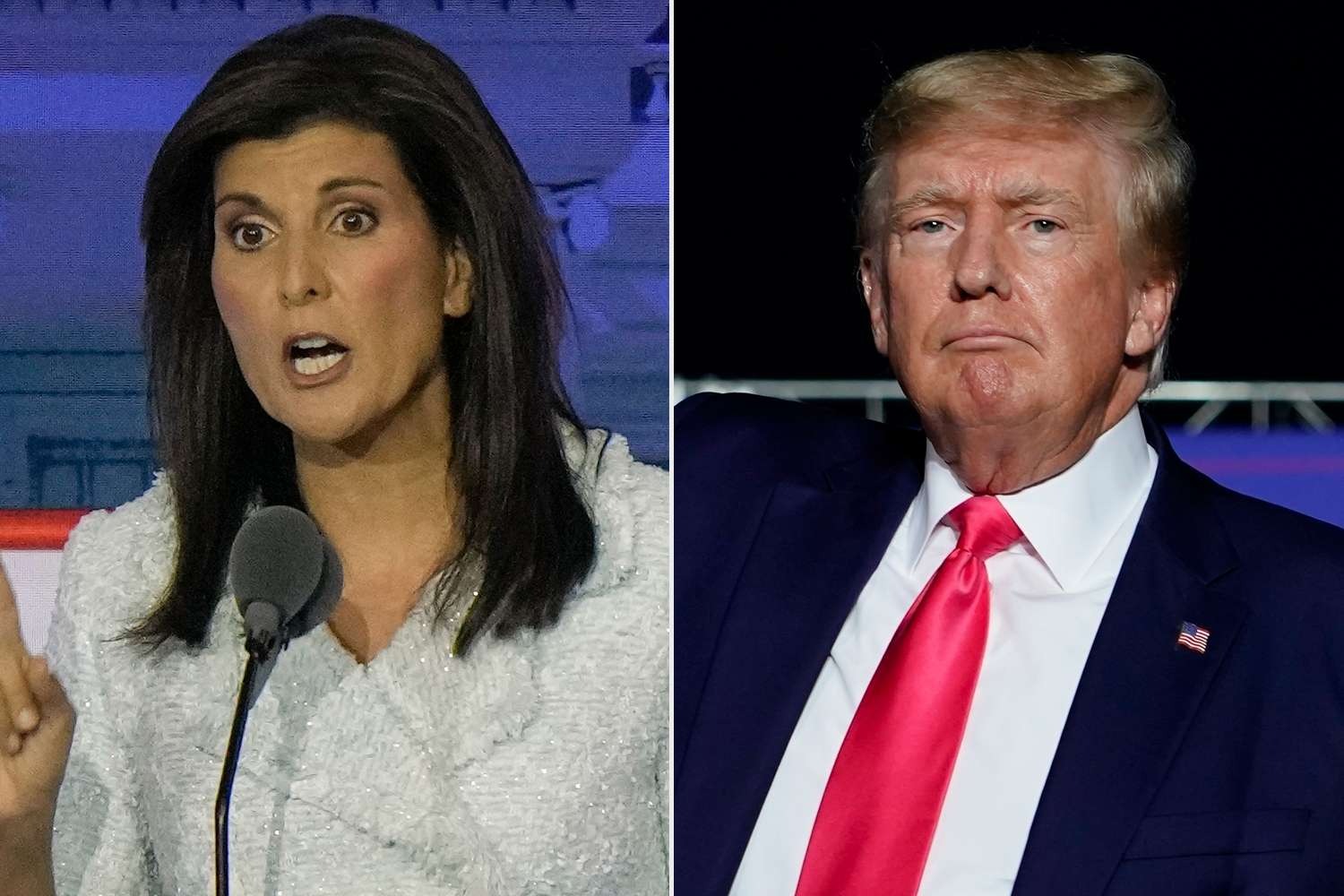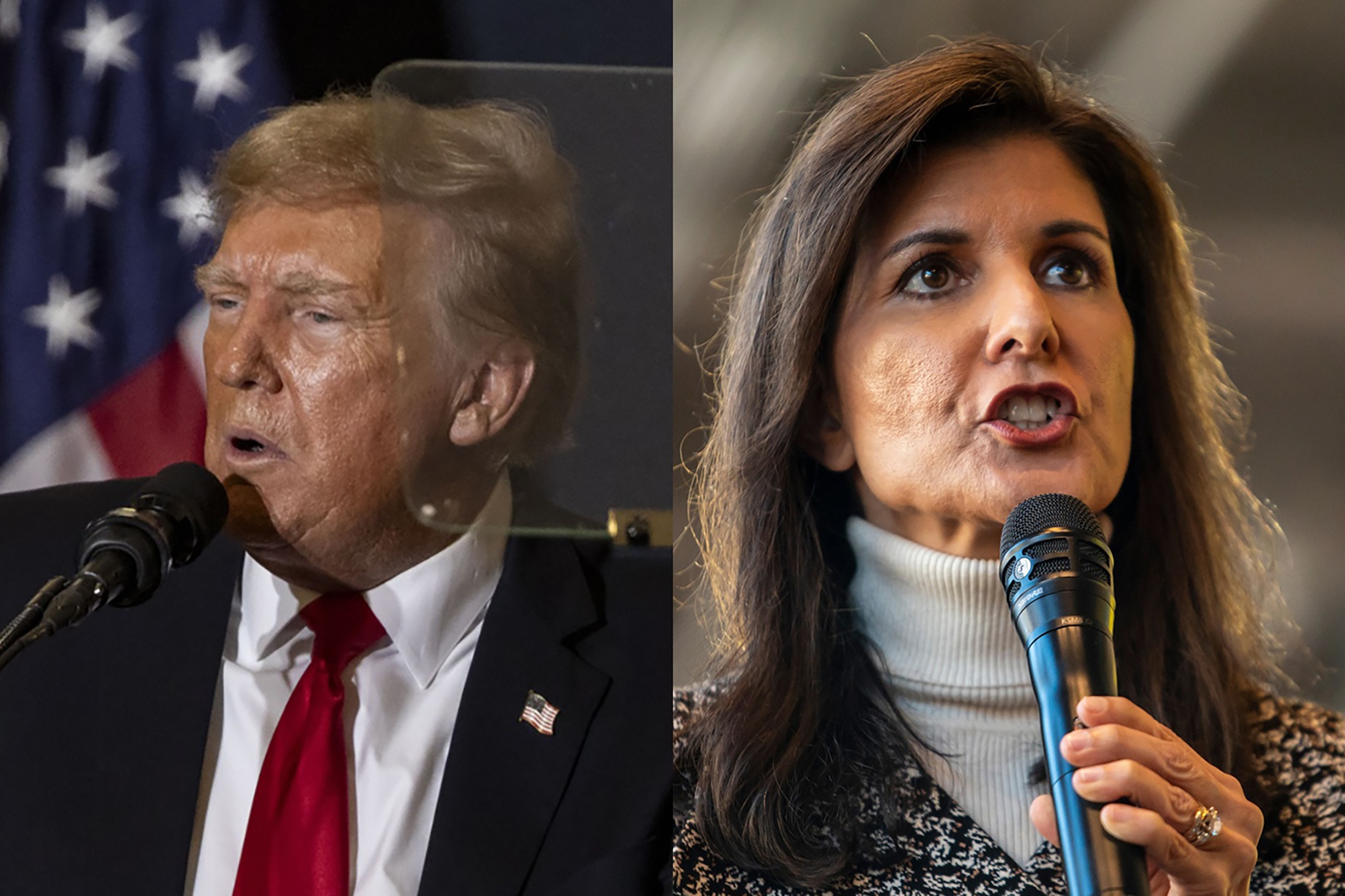Imagine a scenario where a presidential candidate boldly promises to raise taxes on every American, proposing policies that would potentially make life even more challenging for the middle class and those least fortunate in our society.
Such a pledge, one might assume, would be met with skepticism, laughter, and inevitable defeat at the ballot box. However, the unexpected twist is that this proposal comes not from an up-and-coming contender but from former President Donald Trump.
In a political landscape where tax policies are closely scrutinized and fiercely debated, Trump’s call for a massive tax hike on every American has raised eyebrows and generated significant discourse. At the heart of this economic plan is a proposed 10% tariff on every imported good entering the country.

Nikki Haley and Trump (Credits: People)
It’s crucial to recognize that a tariff, in essence, functions as a tax, and a 10% tariff would translate to a 10% increase in the price of every covered item crossing our borders.
The implications of such a proposal are far-reaching and prompt a closer examination of its potential impact on the American populace. A tax hike of this magnitude, akin to a tariff on all imports, would undoubtedly have ripple effects throughout the economy, affecting businesses, consumers, and the overall financial landscape.
For the middle class, the backbone of the American economy, such a tariff could pose a significant challenge. With prices soaring by 10% on a wide array of goods, households may find their budgets stretched thin.
Basic necessities, from groceries to clothing, would become more expensive, placing an added burden on families already grappling with the rising cost of living.
Furthermore, the impact on struggling families cannot be overlooked. Those facing financial hardships may find it increasingly difficult to make ends meet as the prices of essential goods experience a notable uptick.
The very demographic that often looks to government policies for support in times of need would be further marginalized by this proposed tax hike.
The potential consequences extend beyond domestic borders, as a tariff on every import could trigger a chain reaction in international trade relations.
Trade partners may respond with retaliatory measures, creating a challenging environment for American businesses trying to compete globally.
This, in turn, could result in job losses and economic downturns in various sectors, adversely affecting the workforce. Critics argue that such a sweeping tax policy lacks nuance and may not adequately consider the complex dynamics of a globalized economy.
They point out that targeted approaches to address specific economic challenges might be more effective than a broad-based tariff on all imports.
As the discussion unfolds, it is essential to weigh the potential benefits against the drawbacks. Proponents of the tariff may argue that it serves to protect domestic industries, create jobs, and reduce trade imbalances.
However, the nuanced nature of economic policy requires a careful balance between protectionism and maintaining healthy international trade relationships.
In conclusion, the unexpected proposal of a massive tax hike, in the form of a 10% tariff on all imported goods, challenges conventional expectations and sparks intense debate. As citizens, policymakers, and economists grapple with the potential ramifications, the outcome remains uncertain.
The future of American economic policy hangs in the balance, contingent on the decisions made by leaders and the ultimate judgment of the electorate.
























